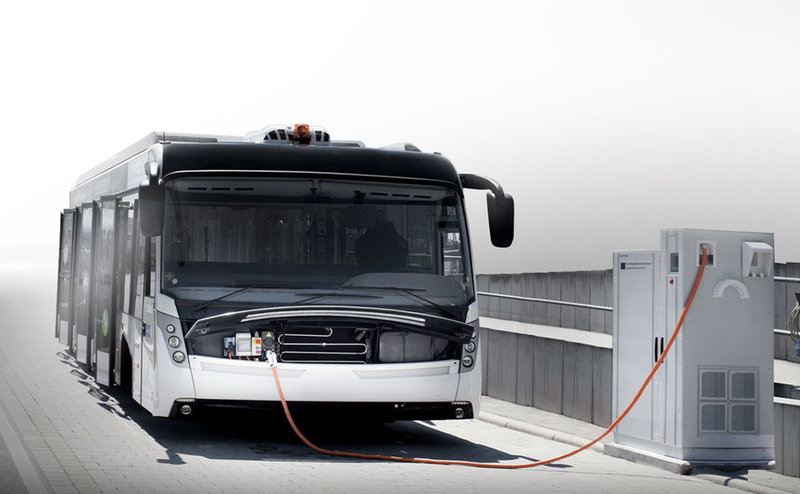Sustainability
Bristol’s battery bus: on route for a carbon-free future
Aiming to be the first net zero airport in the UK by 2030, Bristol Airport has recently implemented a new environmentally friendly scheme: an electric bus. Frankie Youd speaks to the airport to find out about the shuttle and its trial, and whether this could be the future for airport terminal travel.
Image: copyright
The aviation industry produces around 2% of all human-induced CO2 emissions, with aviation being responsible for 12% of CO2 emissions from all transport sources. With these figures in mind, the aviation industry has been working hard to ensure its carbon footprint is reduced via the use of sustainable aviation fuels, using solar panels to power terminals, and electric aircraft.
Bristol Airport has shown no signs of slowing down on its journey to achieve carbon neutrality, setting out of the airport’s carbon roadmap, switching to 100% renewable energy, and now implementing an electric bus into the mix.
The shuttle, which will operate between terminal buildings and aircraft, can transport 110 passengers at a time and is the only project this year the airport will be working on to achieve the status of being net zero by 2030.
All aboard the battery bus
Manufactured by COBUS Industries – a part of the CaetanoBus group - an all-electric bus has begun its trial at Bristol Airport to help the airport achieve its goal of becoming net-zero by 2030. The shuttle – named e.Cobus 300 – operates between the airport’s terminal building and aircraft.
The bus has many features designed for passenger comfort, such as several fully electric air conditioning and heating solutions, which can be customised to meet individual needs, operational information display for passengers and passenger charging points.
During the trial, the operational benefits of the bus will be monitored and studied and compared to the already existing fleet.
Commenting on the trial of the bus, Fraser Dury, Bristol Airport’s, head of engineering says: “The trial e.COBUS was provided by COBUS for approximately eight weeks. We are also having an existing diesel COBUS re-manufactured to be fully electric. This will be completed by COBUS and should be on-site Spring 2022.

A complete charge of the bus takes two hours. Credit: Cobus
Alongside benefits for passengers, there are also perks for the operators. The bus has a flexible charging strategy due to its lithium titanate batteries that are charged on stationery fast chargers. A complete charge of the bus takes two hours which allows for fast operation and reduced charging idle periods.
Fitted with the Siemens ‘ELFA’ electric powertrain the e.Cobus provides a reliable maintenance-free solution, which ensures noise reduction – providing a peaceful journey for passengers. Paired with the powertrain, the batteries that power the bus have a warranty of 8 years and a lifetime of around 12 years and provide operation from minus 30 degrees to over 50 degrees with no cooling or preheating required.
When it comes to maintenance the bus provides a simple easy access solution: service flaps. Located all around the bus these service flaps provide direct access to maintain key components of the bus.
“The key benefit is a reduction in carbon emissions. Removal of a diesel vehicle and replacement with electric,” adds Dury. “This allows us to assess ongoing and future requirements, whilst also allowing an existing asset to be upcycled and/or refurbished.”
Assisting the airport: meeting environmental goals
The decision to use the electric bus was made to further accelerate the airport’s journey to becoming net-zero by 2030, with the airport stating that this will be the last project it focuses on this year. Dury explains: “The decision was part of our NetZero plans and will allow us to trial and operate an e.COBUS over an extended period to understand practical aspects such as charging whilst operating during passenger peaks.”
“The decision to convert an existing COBUS from diesel to electric allowed us to extend the asset life, by upcycling a vehicle which could potentially become obsolete in the future. Given the use of these vehicles is predominantly for short journeys, electric makes a lot of sense as engines are not left idling when passengers are entering and leaving the vehicle.”
If the trial is a success over the course of its eight weeks, then the airport intends to make them a permanent fixture at the airport as well as converting several more diesel COBUS’s to electric versions.
Given the use of these vehicles is predominantly for short journeys, electric makes a lot of sense.
Alongside Bristol Airport’s inclusion of this new battery bus, other companies have been investing in sustainable bus fuel – such as hydrogen. On 18 October this year, the world’s first double-decker hydrogen-powered bus set off on a tour around the UK, starting in London.
Manufactured by Wrightbus, hydrogen distribution firm Ryze Hydrogen, and hydrogen production company INEOS, the design of this new bus is hoped to play a key role in the country’s race to net-zero. Named the ‘Wrightbus Hydroliner’, the bus will travel a 600-mile route from London finishing in Glasgow ahead of the United Nations climate conference, COP26.
With ambitious goals to reduce CO2 emissions, airports – such as Bristol – powering towards net-zero, and new carbon-cutting technology emerging, it doesn’t look unlikely that the aviation industry will be able to achieve these environmental goals before the deadline.
Main image: